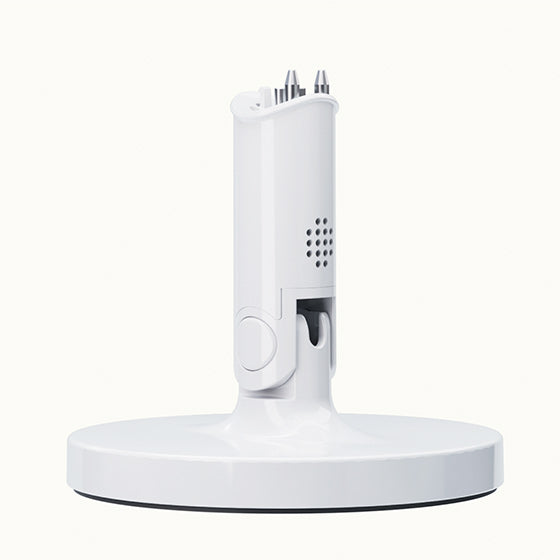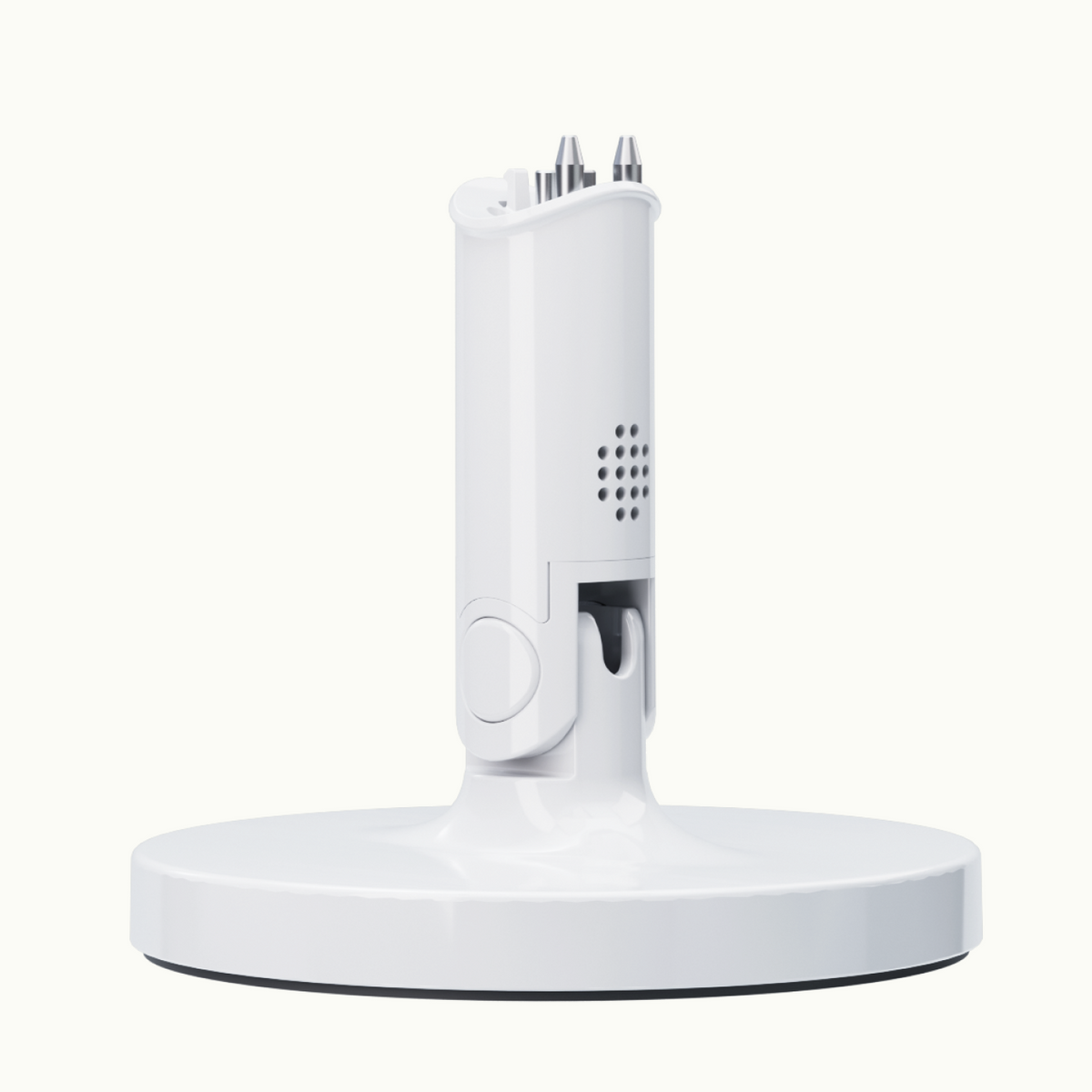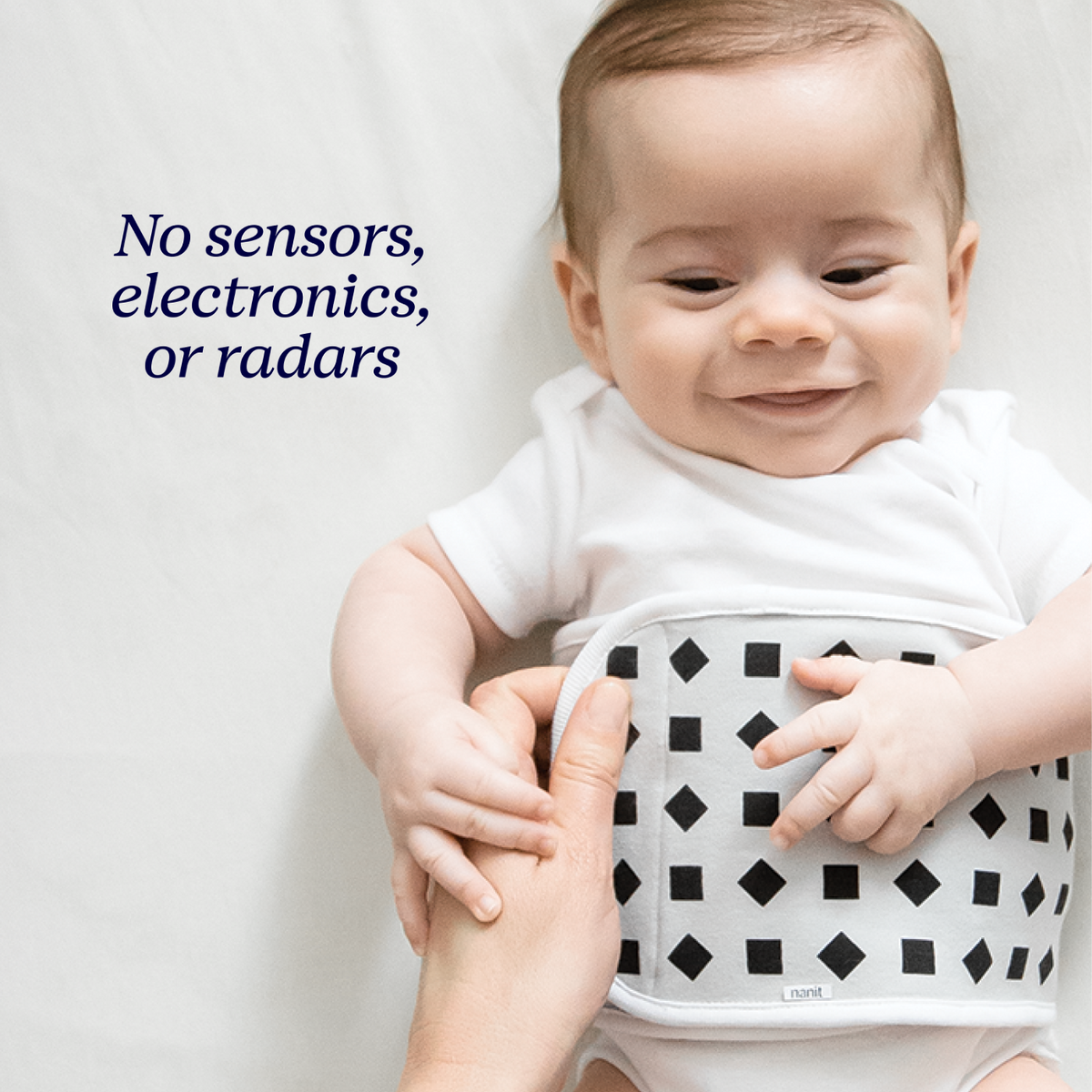Embarking on the nine-month journey of pregnancy brings forth myriad symptoms, from nausea to pregnancy night sweats and everything in between. While not every expectant mother encounters the full spectrum of pregnancy symptoms, fatigue is a common companion known by almost all expectant mothers.
Whether you're reading this with droopy lids or between bouts of sleepiness, join us as we dive into the realm of pregnancy fatigue, offering insights to help you combat and overcome these persistent feelings of exhaustion.
What is pregnancy fatigue?
One moment you’re enjoying your fourth unholy sandwich combination of the day (no judgment!). The next, you feel like you’ve just worked a 12-hour factory work shift with no break—but why?
Let’s be honest: It’s no walk in the park to create an entirely new little person. When you become pregnant, a surge of hormones rushes through your body, preparing it for the process of forming your perfect little bundle of joy. In addition, your heart begins pumping more blood at a quicker rate to ensure your baby receives ample nutrients and oxygen.
It’s a full-time job, and it’s exhausting.
With your body in overdrive, it’s no wonder you feel more tired than usual, from early first trimester on. That sudden urge to lie in the supine position on a convenient soft surface is pregnancy fatigue kicking in. It’s your body’s way of telling you to slow down while it works its magic.
What does pregnancy fatigue feel like? Very similar to what it sounds like. One moment you could be watching your favorite rom-com, and the next, you feel as though you just ran a marathon and need to lie down, stat.
In general, you can attribute any combination of the following symptoms to pregnancy fatigue:
- Difficulty focusing
- Irritability
- Weakness
- Difficulty getting up in the morning
- Increased challenge completing daily tasks
- Persistent tiredness throughout the day
- Increased psychological stress or fatigue
How early does pregnancy fatigue start?
Pregnancy fatigue usually begins during your first trimester, but the severity of exhaustion varies from person to person. Some pregnant women feel mild waves of tiredness, while others would prefer to hibernate for a week straight. It usually takes a back seat during your second trimester and revs back up in those final months of pregnancy as you’re gearing up to meet your little one.
Here, a breakdown of pregnancy fatigue by trimester:
First trimester
Feelings of fatigue in your first trimester usually stem from the surge of hormones you experience after becoming pregnant. One of those hormones, progesterone, prepares the lining of your uterus to help implant and grow your fertilized egg. As the hormone increases, you may notice more feelings of sleepiness during unexpected or inconvenient times of the day.
Other causes of pregnancy exhaustion in the first trimester include:
- An increase in blood volume
- Your body using more energy to create your baby’s placenta and pump extra blood through your body
So, when does first-trimester fatigue peak?
Thankfully, there is a glimmer of light at the end of the fatigue-fueled tunnel. Toward the end of the first trimester, many women begin to feel more energized, noticing fewer periods of exhaustion and finding more energy to seize the day and return to their regular routines.
Second trimester
For many pregnant people, the second trimester is a season of tranquility amid the whirlwind of pregnancy. For many, it brings a revitalized vigor, a pep in your step reminiscent of your seemingly ancient pre-pregnancy days. This newfound energy can be attributed to the restoration of normal hormone levels coupled with the baby's still-modest size, sparing many from common discomforts such as back pain and sleep quality problems (you’ll see those soon enough, so rest now!).
Third trimester
During the final months of pregnancy, you might notice that you again start to slow down a bit. With a growing baby and belly, you might not be moving as nimbly.
That same belly might also be responsible for some of the aches and pains sometimes accompanied by the third trimester. This is because you’re carrying about 20 or more pounds than you were at the start of your pregnancy, and you’re gaining one to two pounds per week on average. In addition, you may have more difficulty sleeping and take more than a few trips to the bathroom in the middle of the night.
How to manage fatigue
If you're grappling with pregnancy fatigue, you're not alone. Let’s explore some useful tips to help you beat fatigue and increase your energy levels, no matter which trimester you're in.
- Maintain a healthy diet. It may seem obvious, but eating nutritious meals can be the difference between energizing your body for longer periods or falling prey to a post-meal energy crash. Instead of indulging in large, heavy meals, consider breaking your daily intake into smaller, more frequent portions. This approach can help sustain your energy levels throughout the day, preventing the fatigue often associated with consuming a single, substantial meal. Opt for a diet that’s high in protein and complex carbs to supply your energy with healthy, long-lasting fuel.
- Eat iron-rich foods. As your blood volume increases, the need for iron also rises. Failing to provide your body with the additional iron required may lead to anemia, characterized by persistent fatigue as one of its primary symptoms. Consuming leafy greens, red meat, and beans can help maintain adequate iron levels.
- Prioritize sleep. Adopt comfortable pregnancy sleep positions and create a sleep routine that ensures you receive seven to nine hours of sleep each night. Getting ample ZZZs can help you stay energized throughout the day, but don’t hesitate to take a nap if an unexpected bout of fatigue hits. It’ll give you a much-needed energy boost and give your body a rest.
- Manage stress levels. Feelings of stress and anxiety can contribute to increased fatigue. Try adding relaxing activities to your day, such as meditation and deep breathing. If you’re feeling up to it, you can even treat yourself to a prenatal massage for the ultimate R&R.
- Incorporate pregnancy-friendly exercise. Have you experienced an energizing post-exercise “high”? Exercise not only enhances mood and energy by boosting dopamine and serotonin levels, but it also improves oxygen circulation, aiding efficient blood pumping. Additionally, regular exercise contributes to better nighttime sleep quality. Strive for 30 minutes daily, engaging in gentle activities like walking, strength training, or swimming. However, try to avoid physical activity close to bedtime because exercise increases adrenaline levels, making it challenging to wind down and relax before sleep.
- Share the load. Leverage the boost in energy during the second trimester to get organized for your baby's arrival. Take advantage of this time to enlist the help of loved ones. Delegate tasks such as assembling baby furniture, organizing the nursery, and stocking up on essentials. This way, you can spread out the workload and ensure everything is ready well before the final stretch of your pregnancy (you never know when babies want to arrive!). Embracing support now allows you to focus on self-care and enjoy a smoother transition into the later stages of pregnancy.
- Connect with others. Even if you’re utilizing all of the aforementioned tips, the feeling of exhaustion can still bring its friend frustration to the party. If this happens, reach out to others to express how you’re feeling. Whether you use an app to chat with other expecting moms or text your best friend to lament the torture that is pregnancy fatigue, there are plenty of outlets that allow you to connect with others and receive emotional support.
- Listen to your body. If a lack of energy persists, you may feel like pushing through and conquering the tasks at hand. However, your body is fatigued for a reason, and it’s telling you to take it easy so it can focus on the most important task of all—growing your little one.
It's essential to consult with a healthcare professional if you experience persistent fatigue. Your healthcare provider can offer personalized advice, conduct necessary tests, and ensure both your well-being and that of your baby. Don't hesitate to seek their guidance if you notice any concerning changes in your energy levels.
Build parental confidence with Nanit
What else could pregnant women could live without? Fatigue. Early pregnancy offers so many other exciting aspects to look forward to, though, from seeing those two faint lines on a positive pregnancy test to announcing the news to your loved ones. As you continue on your pregnancy journey, Nanit understands that ensuring your growing baby's well-being is a top priority.
That's where the Nanit Pro Camera camera comes in, offering a cutting-edge solution designed to ease the concerns of new parents. With advanced camera technology as well as sensor-free Breathing Wear, our baby products go beyond standard monitoring. They provide insights into your baby's sleep patterns, offering you peace of mind and a dash of extra sleep. The baby monitor also provides advanced sleep analytics and tracks your baby’s developmental milestones, so you never have to miss a single moment.
While you savor the exciting moments of early pregnancy and beyond, let Nanit be your trusted ally in ensuring your family sleeps soundly.
Key takeaways
- Pregnancy fatigue, a common symptom driven by hormonal changes and increased bodily processes, fluctuates across trimesters, most often peaking in the first, subsiding in the second, and returning in the third.
- Coping strategies for managing pregnancy fatigue include maintaining a healthy diet, incorporating iron-rich foods, prioritizing sleep, managing stress levels through relaxation activities, engaging in regular low-impact exercise, and seeking help with daily tasks.
- Acknowledging the trimester-specific challenges and adopting tailored approaches, such as optimizing sleep environments, staying connected with others, and listening to your body, empowers expectant mothers to navigate and alleviate the effects of pregnancy exhaustion.
Sources
The Stand. How Pregnancy Impacts a Woman’s Body. https://www.uow.edu.au/the-stand/2019/how-pregnancy-impacts-a-womans-body.php
Cleveland Clinic. Progesterone. https://my.clevelandclinic.org/health/body/24562-progesterone
John Hopkins Medicine. The Second Trimester. https://www.hopkinsmedicine.org/health/wellness-and-prevention/the-second-trimester
American Pregnancy Association. Pregnancy Weight Gain. https://americanpregnancy.org/healthy-pregnancy/pregnancy-health-wellness/pregnancy-weight-gain/
NIH. Determinants of fatigue and stress. https://www.ncbi.nlm.nih.gov/pmc/articles/PMC3148561/
Harvard Health. Does exercise really boost energy levels? https://www.health.harvard.edu/exercise-and-fitness/does-exercise-really-boost-energy-levels


















